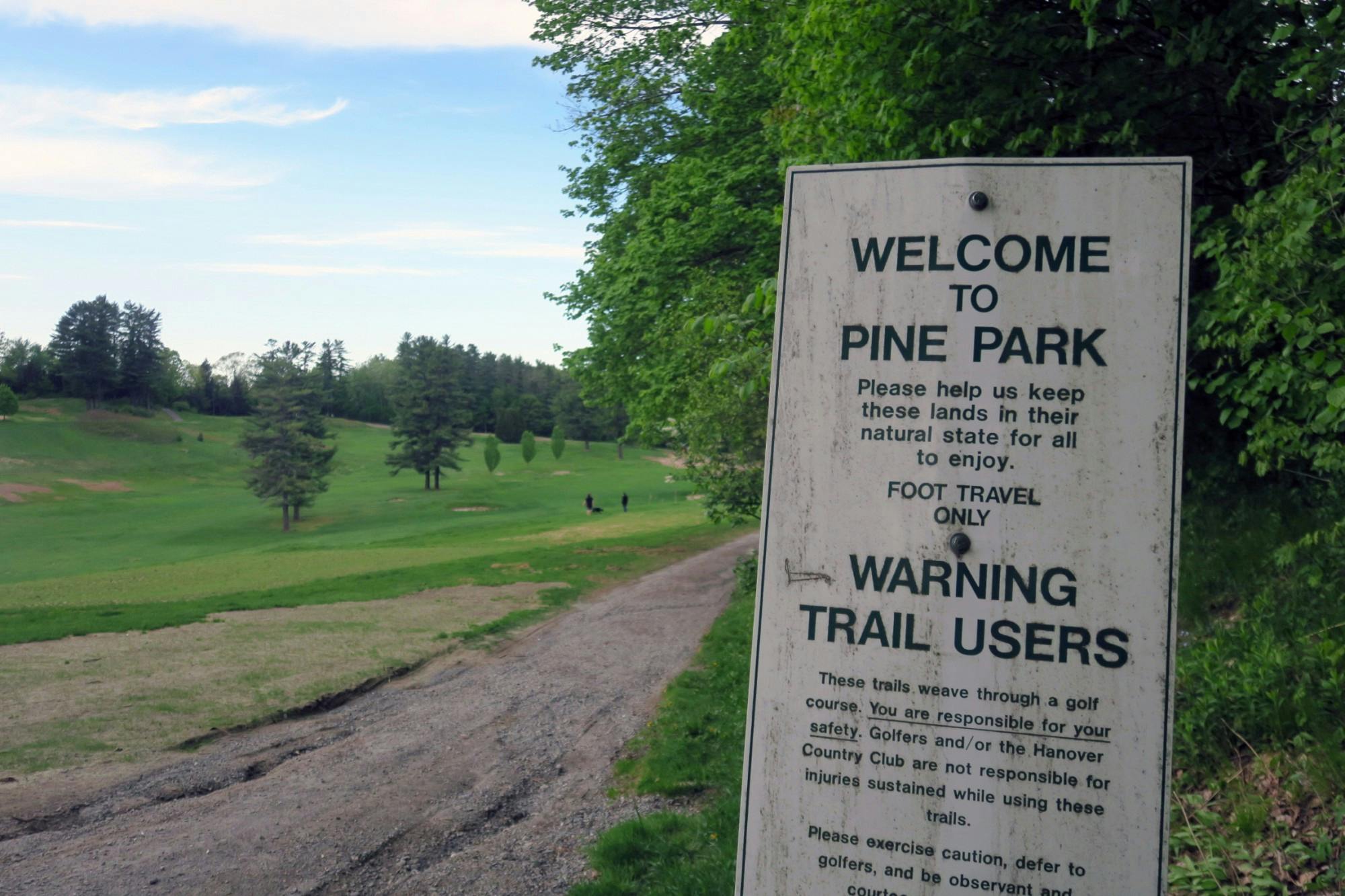The Pine Park Board of Trustees plans to restore the park by improving accessibility and preserving wildlife habitats, according to the president of the Pine Park Board of Trustees Linda Fowler. Over the next three years, the Pine Park Association will work to combat invasive species, increase accessibility for those with physical disabilities with paved trails and introduce more climate-resilient species to the forest, Fowler said.
“The College, in partnership with Pine Park, is really invested in making sure that the natural resource that we have there is well taken care of and is something that is accessible and available to as many people as possible,” vice president of campus services and institutional projects Josh Keniston said.
The Pine Park Board of Trustees consists of 12 members of the community — including one representative from the College and one from the town of Hanover, according to Fowler. The park is managed jointly by the College and the town. The College’s campus services division has some responsibilities in maintaining Pine Park, such as restoring the golf course to a more natural state by getting rid of golf equipment, according to Keniston.
“However, there has been no stewardship of the park in a long time,” Fowler said.
Fowler added that the forest and trails were stable until about 15 years ago, when erosion and fallen trees caused trails to be narrowed or closed.In response, the Trustees began fundraising to restore the park rather than relying on the College or town of Hanover.. In the fall, the trails along the ravine in Girl Brook that were badly damaged by erosion received repairs, thanks to a grant from The Jack and Dorothy Byrne Foundation for $20,000.
In addition to this, the Trustees have reopened a section of old Rope Ferry Road in an effort to revive some of the historic aspects of the park. The Trustees also commissioned a forest management survey, completed last July, which demonstrated where invasive species and where hazardous trees were threatening trails. With a grant from the Natural Resources Conservation Service in conjunction with their own funds, the Trustees are embarking on a three-year plan to control invasive species along the edges between the forest and golf course, Fowler added.
The majority of the Trustees’ fundraising will be directed towards making the golf course wheelchair-accessible and child friendly by developing a trail that is compliant with the American Disabilities Act, according to Fowler. The new trail’s installation will begin in July.
The Dartmouth Outing Club uses Pine Park to run various types of trips, from snowshoeing to hiking around the park, according to Dartmouth Outing Club president Abigail Johnson ’23.
Upon hearing plans to construct a trail consistent with ADA guidelines, Johnson said she is excited about future trip possibilities in the park.
“Having an ADA-compliant trail that is within walking distance could be awesome and might allow more opportunities to run more accessible trips,” Johnson said.
Fowler noted that since many people “don’t really know” the entrance of Pine Park, the Trustees are working to construct a proper way for the park, which is expected to be completed by October.
With regards to the park’s section of the golf course, Fowler said the Trustees aim to make it feel “more natural” by getting rid of heavy equipment on the flat areas that were used for tees and greens. The Pine Park Association has additionally deconstructed the bridge between the east and west side of the Girl Brook ravine.
“Part of what we’ve been working on with the Pine Park Association is to decommission some of the golf course infrastructure — such as the high bridge and some of the old tees — and returning them to a more natural state,” Keniston said. “The high bridge has now come down, and there’s ongoing work to restore some of the other land.”
The Pine Park Association’s 2019 forest management plan, which was completed last year, is also being used to inspect 11 acres of land in the park that has been heavily logged or has trees that are infested with fungus or. The Trustees are beginning to implement the plan in order to “get the forest ready for the continuing problems of climate change,” according to Fowler. Officials will be introducing several new plant species into the forest that are more adept against warmer temperatures, but the new plantings will be delayed until next year.
Fowler added that the new species will boost resilience of forest species in the face of climate change and address long term needs of the park that have been neglected.
“The overall goals are making the park more resilient in the face of climate change by addressing a lot of the long term needs that have been neglected over time and improving public access,” Fowler said.




